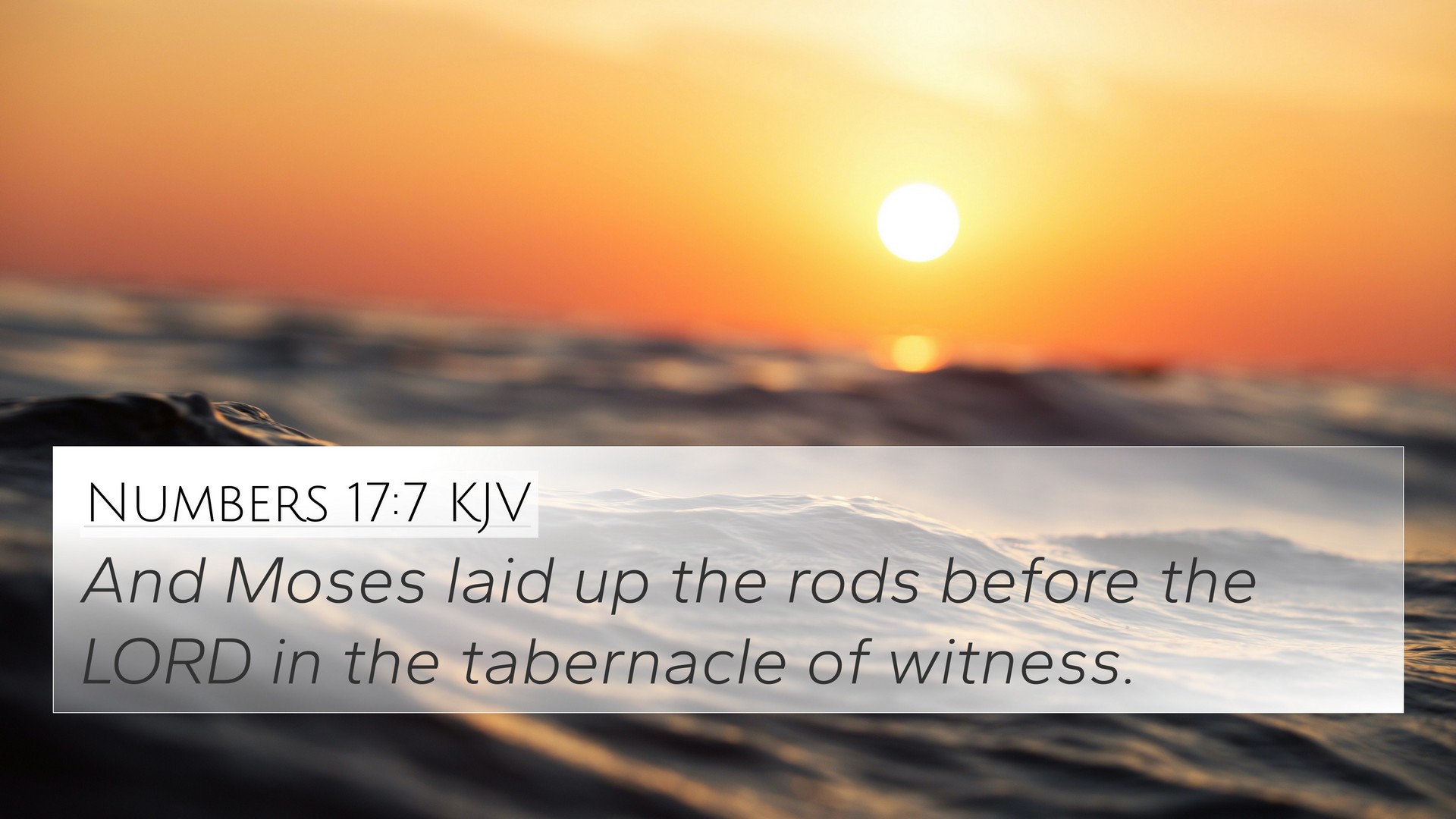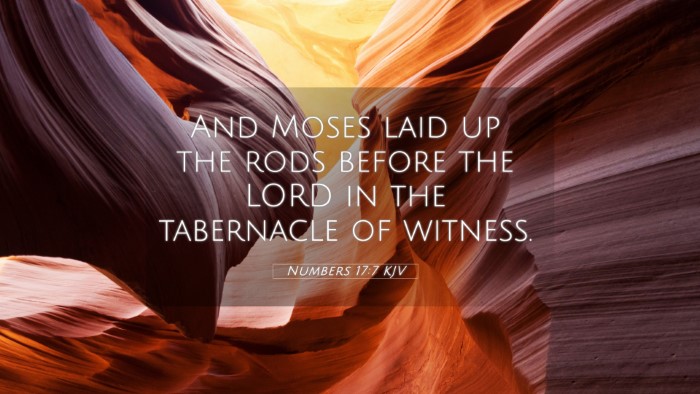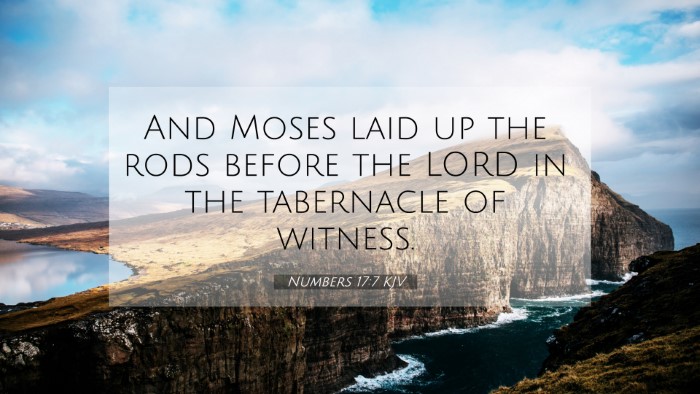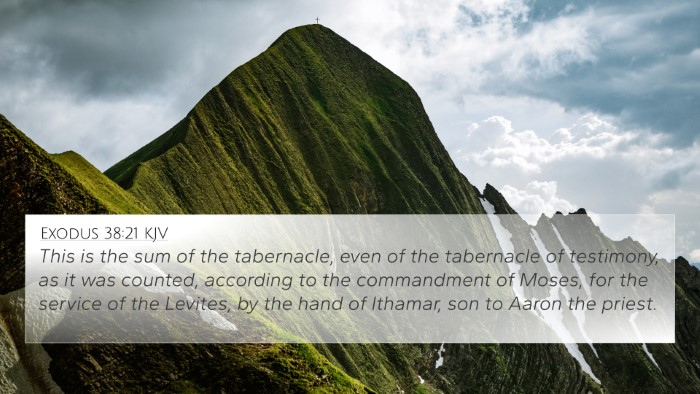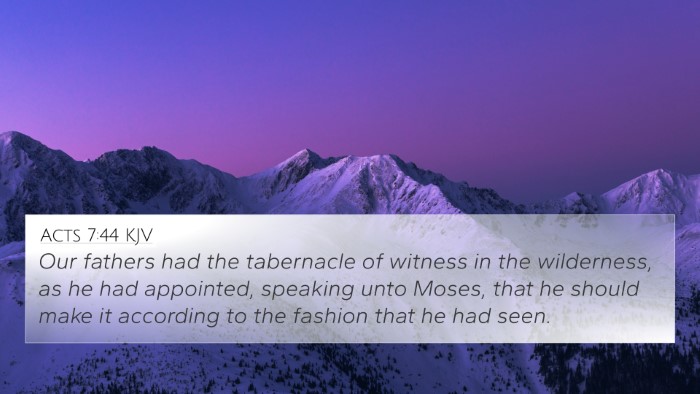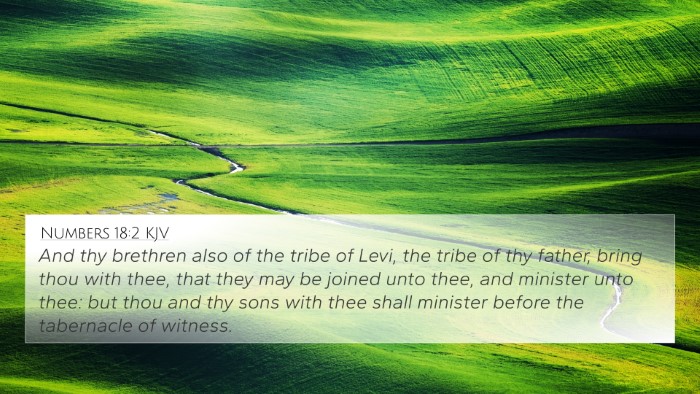Understanding Numbers 17:7
Numbers 17:7 states: "And Moses laid up the rods before the Lord in the tabernacle of witness." This verse signifies an important moment in the context of God's selection of Aaron's descendants as priests. The act of laying up the rods, representing different tribes, illustrates the divine process of selection and affirmation.
Commentary Insights
According to Matthew Henry, this act of laying the rods "before the Lord" indicates a presentation before God's presence, emphasizing the culmination of a contest between the tribes for priestly authority. Henry interprets this as a demonstration of God's sovereignty and the necessity of divine approval for leadership roles in Israel.
Albert Barnes adds that this act encapsulates the larger theme of God's choice and confirmation. He notes that the rods represent each tribe's claim to priesthood, yet it is God who ultimately decides the rightful priest. This serves as a significant teaching moment regarding humility and reliance on divine will.
Adam Clarke further elaborates that the rod symbolizes authority and leadership attributes. The rods’ gathering point in the tabernacle stresses the importance of seeking God's counsel in matters of leadership, a crucial lesson for both ancient and modern communities.
Cross-References to Numbers 17:7
-
Hebrews 5:4 - Discusses the priestly calling and divine selection, aligning with the themes presented in Numbers 17.
-
1 Chronicles 24:3 - References the divisions of priestly duties among the descendants of Aaron, linking back to God's choice in Numbers 17.
-
Exodus 28:1 - The consecration of Aaron and his sons as priests provides a foundational understanding of priestly roles.
-
Jeremiah 33:18 - Highlights God’s promise to the Levites, reinforcing the significance of priestly lineage and selection.
-
Psalms 105:26 - Discusses the calling of Aaron, relating to the high priest's selection confirmed in Numbers.
-
Malachi 2:4-5 - Addresses the covenant made with Levi, emphasizing the enduring nature of Aaronic priesthood.
-
Matthew 22:44 - Christ’s interpretation of David's words reflects the authority bestowed upon a leader, reminiscent of the leader’s authority presented through the rods.
-
James 4:10 - Humility before God is critical in leadership, echoing the lesson drawn from Moses presenting the rods.
-
Romans 12:1 - Calls for presenting oneself as a living sacrifice to God, akin to presenting the rods in faith.
Thematic Connections
The themes of divine selection, authority, and priesthood are woven throughout Numbers 17:7 and extend across various parts of the Scripture. This notion of presenting oneself or anything significant before God as an act of faith and seeking divine approval is integral to understanding the broader narrative of priestly roles:
- Divine Sovereignty - God chooses leaders based on His will, as seen in the narratives involving Samuel and David.
- Leadership and Authority - Biblical leadership is rooted in divine calling, demonstrated through numerous leaders like Moses, Joshua, and the apostles.
- Faithfulness - The importance of presenting oneself or one’s works to God, asking for guidance and confirmation, as shown in various prayers and offerings.
Conclusion
In summary, Numbers 17:7 not only outlines an ancient ritual but serves as a metaphor for how leaders are chosen and acknowledged by God. This connection between the acts of faith, the establishment of authority, and the critical inquiry into God’s selection continues to resonate today. The combined insights from various commentaries illuminate the depth and richness of this verse, emphasizing the necessity of understanding these connections through a comprehensive Bible cross-reference approach.
